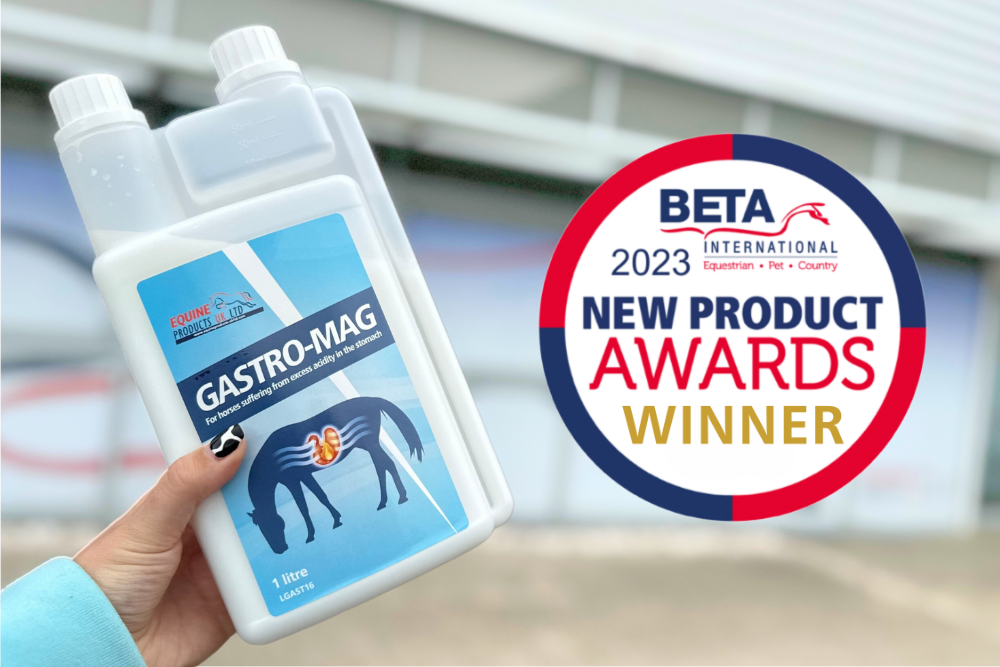All You Need To Know About Gastro-Mag

Written by Briony Witherow MSc, BSc, RNutr.
This month’s blog focuses on Gastromag – what it is and when it can be used.
What is Gastromag?
Gastromag is a supplement designed to support horses with issues caused by excess acidity in the stomach. This discomfort might present as poor appetite, stereotypies such as crib biting or other changes in behaviour. While we would always recommend contacting a vet in the first instance where ulcers are suspected, Gastromag can be used in conjunction with veterinary advice, management and feeding adjustments to help promote a healthy gut. Furthermore, Gastromag can be used as a preventative supplement added to the ration on occasion where an acidic stomach environment may be more likely – for example when competing and travelling or in your horse’s pre-exercise fibre meal (See our blog on Gastric Ulcers for factors that may increase the risk of ulcers).
What active ingredients does it contain?
Magnesium Hydroxide and Sodium Bicarbonate are antacids. These work to buffer the stomach contents (reducing acidity) to help tissue exposed to stomach acid recover.
How does this work?
As a trickle feeder, the horse’s stomach secretes acid almost continuously. While acid plays an essential role in helping to breakdown food, in the domesticated environment where there may not be a constant trickle of food entering the stomach, acidity can build. Antacids are alkaline in their pH (opposite to acidic), when they encounter acid, they react to form salt and water helping to raise the pH making the environment less acidic.
Key Uses
Gastromag can be used as part of preventative management for digestive discomfort for example, provided in the pre-exercise meal or high stress/risk points (travelling, farrier etc.) or as part of the feeding routine fed in normal concentrate feed. Gastromag can also be used alongside veterinary advice, as part of the holistic management of a horse diagnosed with ulcers.
Best practice
Where managing the diet to reduce acidity and the risk of ulcers, there are a few key foundations to lay. Firstly, the base ration should be high in fibre ensuring an absolute minimum of 1.5% dry matter per kilogram bodyweight (7.5kg dry matter for a 500kg horse which equates to around 8-8.5kg of hay). Secondly, where concentrate feed is fed, it must be low in starch and sugar (less than 2g per kilogram bodyweight per day, a maximum of 1kg for a 500kg horse). In addition to this appropriate management including a pre-exercise fibre meal, constant access to fresh clean water and low stress environment are recommended.
Antacids such as Magnesium Hydroxide have been shown to help reduce acidity in the stomach, however, the effects of these are relatively short-lived. As such, when using antacid type supplements (like Gastromag), the effect can be optimised by feeding tactically based on when stomach acidity might be at its highest. For example, the product could be added to the small fibre meal prior to exercise or divided across the concentrate feed at multiple points during the day.
